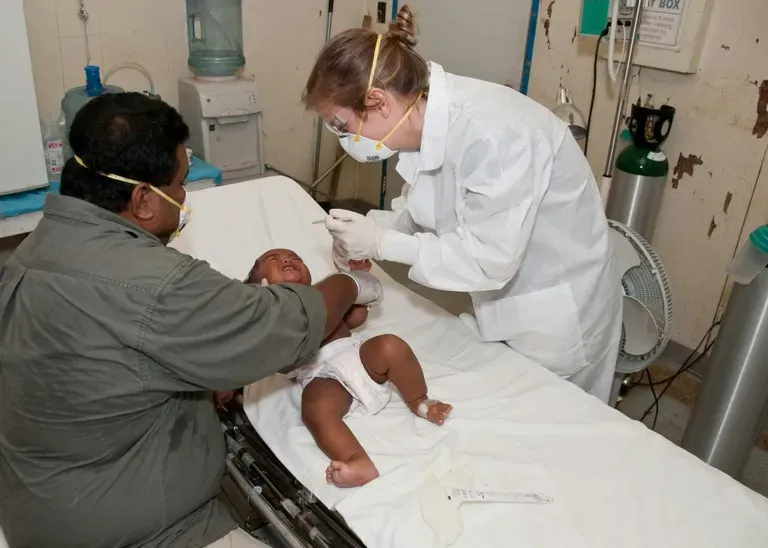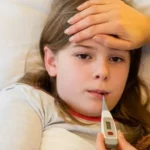Understanding when to use pediatric urgent care versus emergency care empowers parents to make informed decisions for their child’s health.
Every parent faces the challenge of choosing where to take their child when sick or injured. A pediatric urgent care is usually appropriate when your child’s pediatrician is out of reach but the situation is not severe enough to warrant a visit to the ER. Understanding when to go to urgent care pediatrics and when to go to the ER is good knowledge that every parent should possess.
Where Should I Take My Sick or Injured Child?
For serious problems that threaten your child’s health, the ER is the best choice for prompt treatment. Conditions that require emergency care include severe breathing issues, head injuries with loss of consciousness, neck or back injuries, possible poisoning, mental health emergencies and any illness or injury where the child appears severely dehydrated, in severe pain or their condition seems to be rapidly worsening. For infants less than 2 months old with a fever of 100.4F or greater, the ER provides the most extensive evaluation and resources to diagnose the cause.
When Should I Take My Child to His Pediatrician?
Generally, most common sicknesses do not need the attention of a medical practitioner as they can be easily treated by taking proper doses of drugs that can be found in drug stores or by taking enough rest. Although, the lives of such children are typical, there are signs which may suggest that your child needs the attention of his pediatrician. They are persistent or unexplained high fever for more than 72 hours, severe earache lasting for more than three days, colored sputum production, redness, discharge or pain in the eyes, loss of appetite due to vomiting or diarrhea, skin infection, pain, limping or stiffness, severe headache that hampers normal functioning, changes in emotional responses or interaction, and injuries that hamper normal movement or play. In their general practice, they should attend to you to address other issues that may not improve with time and require the pediatrician’s medical recommendations and recommended treatment regimen for your child’s recovery.
Guidance on serious symptoms requiring emergency care vs ailments that can wait for an urgent care visit.
It is thus necessary to learn when a child needs emergency medical treatment, and when it is advisable to go to a pediatric urgent care clinic. Medical attention should be sought for situations like chest pain that could be severe, having breathing trouble, having blue lips, vomiting, seizures, or serious injury to children among others. These scenarios require immediate quality medical intervention to avoid either further complications or death. On the other hand, the appropriate place for visiting the urgent care facilities is for emergent but non-life-threatening conditions such as fractured bones, injuries, mild fever, ear infection, mild to moderate burn, or a cut that may require stitches. These facilities offer immediate medical care and are not quite as slow as places like the ER while attending to issues with non-life-threatening concerns in children.
Factors that determine the best option
Some circumstances such as the age of your child can also help to determine which one is most appropriate, the pediatric urgent care or the ER. For instance, conditions in very young children who are below 2 months of age may need a level of assessment that is provided in an ER. Also, if your child has a complicated chronic illness, the primary care provider or general practitioners at a children’s hospital may be better suited to address any emergent needs. You can also call your pediatrician even if it is after hours; they will guide you on the appropriate course of action.
Information to provide medical facilities about your child
If you have to take your child to any medical facility, there is some information that may be beneficial to the clinicians. Information on how long symptoms have been present, if the client is on any medications at present, if the client has any previously diagnosed conditions or allergies and presenting the complaint as clearly and calmly as possible is quite valuable. It is also recommended to have with you your child’s medical insurance card as well as records on immunizations that they have received. Although it is never easy as a parent to see your child suffer, understanding when the ER is more appropriate than an urgent visit can assist in getting your child the help he or she desires as soon as possible in the proper surroundings. The personnel at both types of facilities are there to professionally attend to your child’s pressing medical concerns.
Establishing a relationship with a pediatrician
When facing an urgent medical issue with your child, it is reassuring to have an experienced pediatrician you trust to contact for guidance. At Bread of Life Pediatrics, parents have access to that level of trusted expertise with Dr. Ijeoma Oguagha and her knowledgeable team. As your child’s primary care provider, Dr. Oguagha understands your child’s full medical history and can help advise whether pediatric urgent care is sufficient, or if a higher level of emergency care may be warranted based on their specific case.
Don’t hesitate to contact Bread of Life Pediatrics for a recommendation on the most appropriate treatment setting the next time your child needs prompt medical attention. We offer families comprehensive pediatric services from newborn care through adolescence. To establish your child as a patient with our practice, call 346-746-7420 or schedule an appointment.



